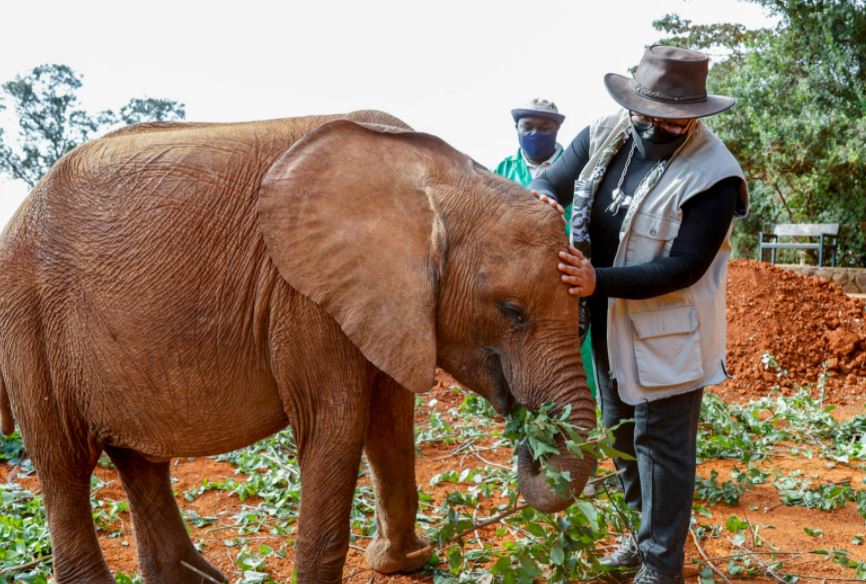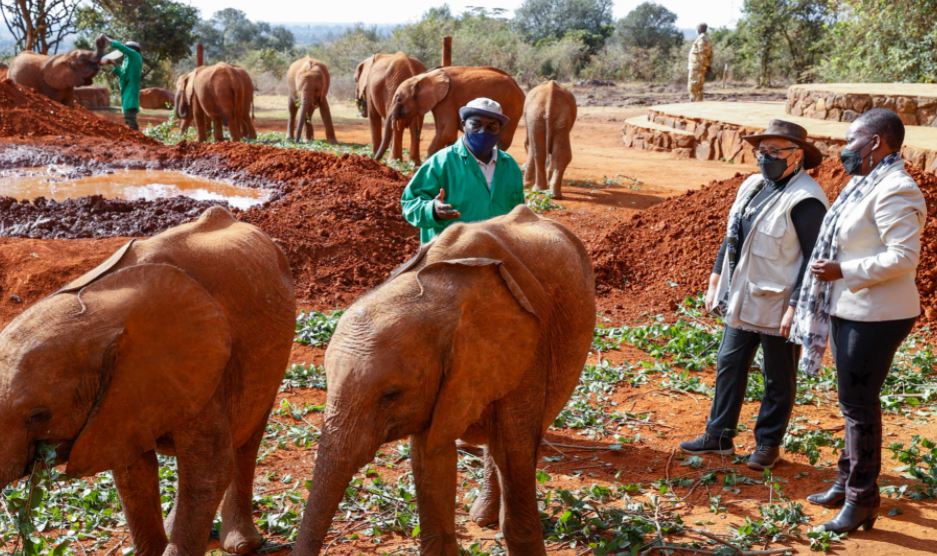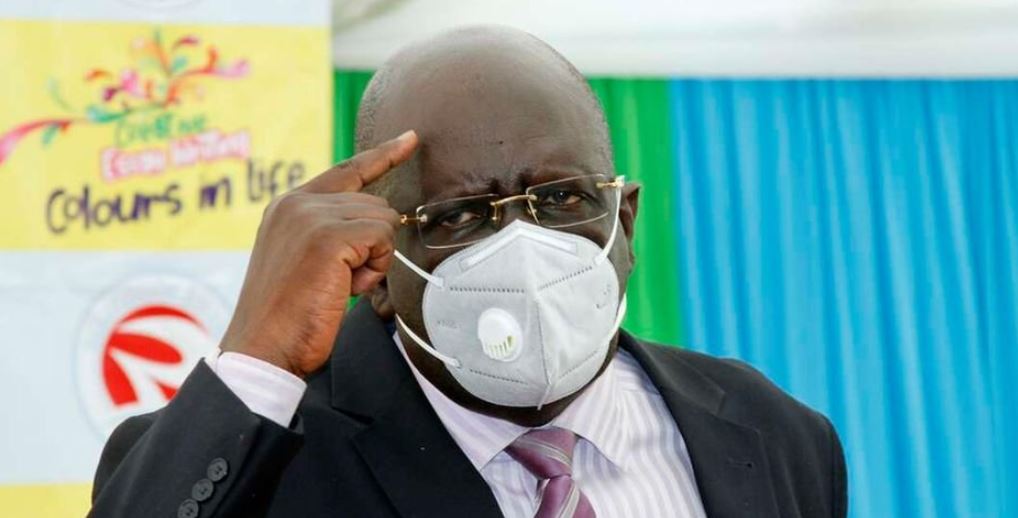
Speaking on Tuesday during a virtual panel discussion on Africa’s human-wildlife crisis organised by the Elephant Protection Initiative (EPI), the First Lady said Kenya had made significant gains in wildlife conservation, in recent years, because of greater stakeholder collaboration.
“If we want to solve our current challenges, more resources, and practical solutions need to be adopted in our conservation efforts so that we can build a better future where human and wildlife co-exist peacefully,” the First Lady said, and assured that she will continue leading efforts to end human-wildlife conflicts.
“I commit to adding my voice to advocate for more action in addressing the human-elephant conflicts,” she said.
First Lady Margaret Kenyatta is a board member of the EPI, an African advocacy platform that seeks to end conflicts between humans and elephants.
Using the case of Kenya, the First Lady commended collaborative efforts by the government and stakeholders that have seen the country’s elephant population grow by more than double in the last three decades from 16,000 in 1989 to 34,354 animals last year.
“This is an extraordinary African conservation success story and testimony to prove that commitment from dedicated stakeholders can save our magnificent animals.
“Kenya’s success story in its elephant conservation efforts stem from our national resolve to cherish our wildlife which is a major tourism income earner for our country,” she said.
The First Lady informed the meeting that Kenya had over the years developed unique conservation models that could be replicated in other countries such as the beehive fencing in the Tsavo National Park.
She advocated for more involvement of women in conservation and cited Imbirikani Women Beading in Loitoktok and the Bead Works Kenya as some of the projects that had not only helped reduce human-wildlife conflicts but also uplifted the socioeconomic wellbeing of host communities.
At the same time, the First Lady regretted that the resurgence of conflicts involving elephants and host communities was a threat to Kenya’s recent conservation successes.
“While elephants are treasured, they can be a very terrifying threat to individuals, families and communities. People are being killed, livelihoods are being destroyed, children are skipping school due to fear and elephants are being killed in retaliation,” she noted.
The First Lady applauded EPI for providing a platform for leaders and conservationists to share experiences, learn from each other, and exchange ideas, best practices, latest technologies, and techniques in elephant conservation.
“This dialogue, led by Africans, is timely because it provides us with an opportunity to present ambitious ideas, speak with one united voice and resolve; and hold each other accountable,” the First Lady said.
Former Ethiopian Prime Minister Hailemariam Desalegn gave an account of the rapidly diminishing elephant population in Babile Elephant Sanctuary in Ethiopia as a result of the human-wildlife conflict.
“My foundation, the Hailemariam Desalegn Foundation, is not prepared to standby and watch this sanctuary disappear. We are determined to serve Babile elephants and also build a sustainable future for the people who live in and around the sanctuary,” the former Ethiopian PM said.
Former President of Botswana Ian Khama, who is also EPI’s chairman, regretted that human-elephant conflict is prevalent in all the 21 EPI African member countries and expressed the need for innovative ways of addressing the problem.
Other speakers included Chad’s Environment Minister Mahamat Ahmat Lazina, UN’s Convention on Biological Diversity Executive Secretary Elizabeth Mrema, Angola’s Secretary of State Paula Coelho and EPI Programme Development Director Greta Iori.










